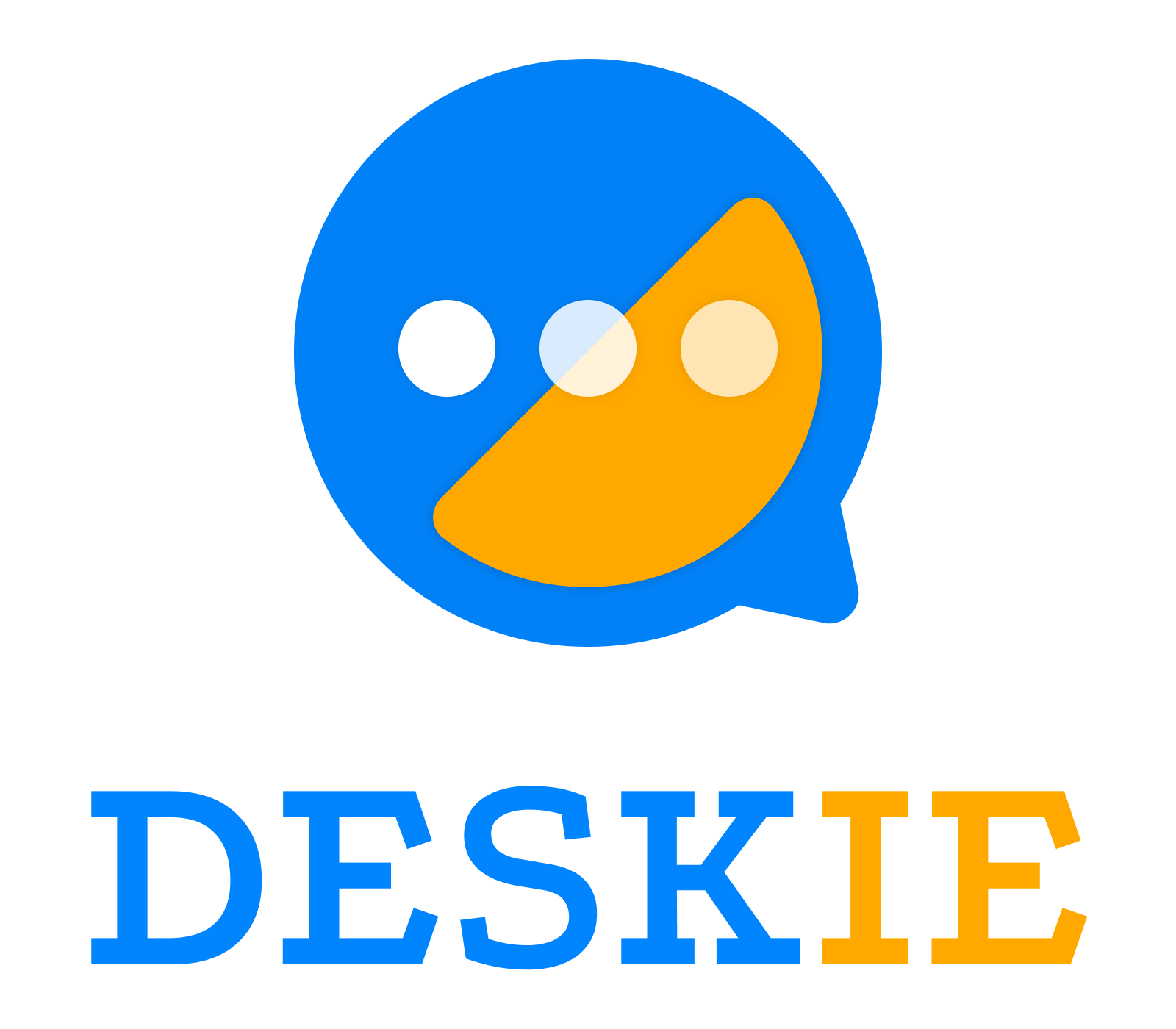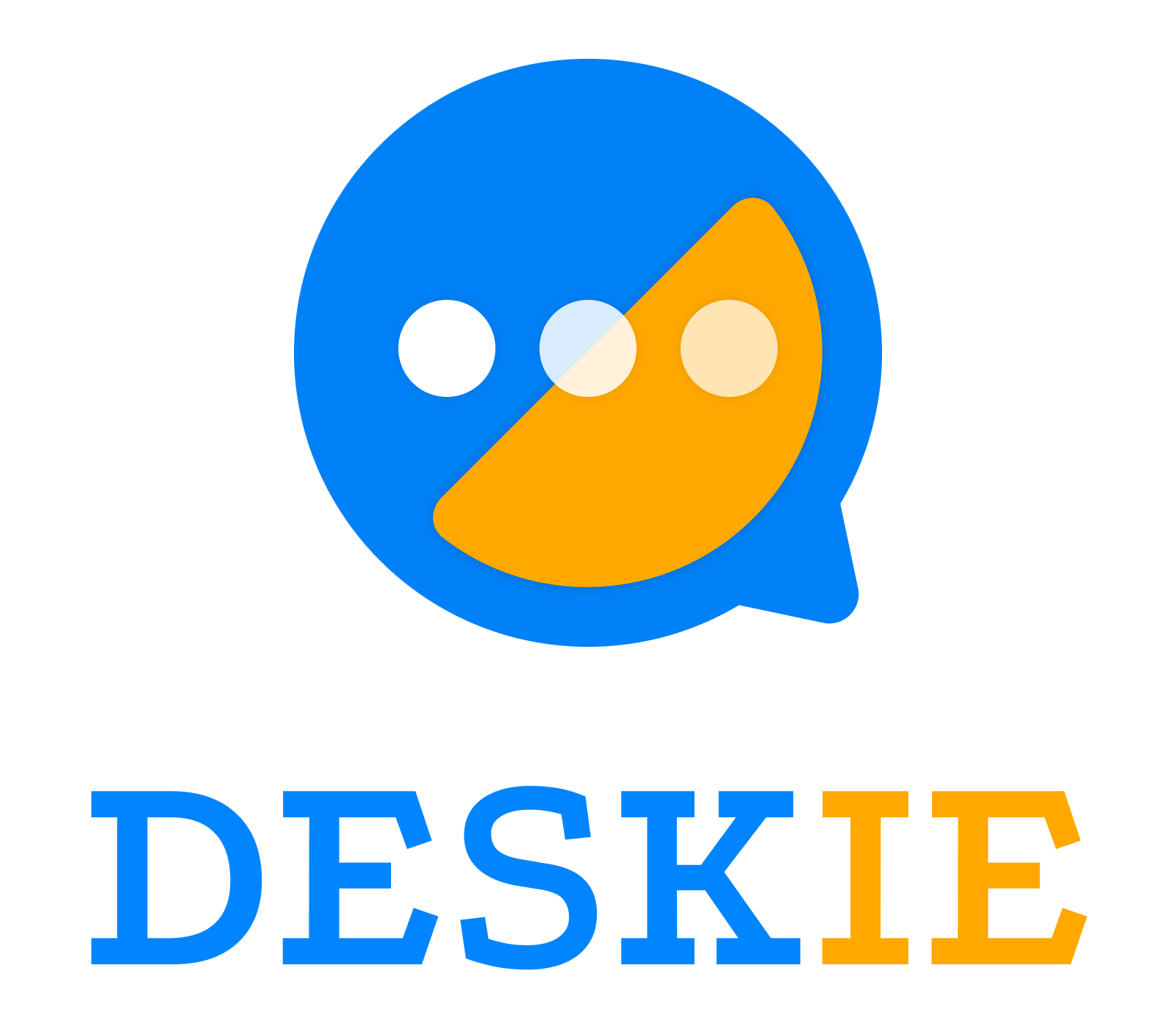We use cookies to improve your browsing experience and show personalized content of our service. By choosing "I Accept", you consent to our use of cookies and other technologies of Deskie.
Size daha uygun ve daha iyi hizmet sunabilmemiz için çerezleri kullanıyoruz. "Kabul Et" düğmesine tıklayarak, çerez kullanımını ve aynı amaç için diğer araçların Deskie tarafından kullanılmalarını onaylamış olursunuz.
From Robots to Humans

The usual workday of the customer support representative includes lots of communication on autopilot. And that is not something to be surprised about — when processing a large number of similar cases every day, it is quite hard to remain creative and formulate the same idea in different ways. However, this situation often leads to a decrease in the quality of responses. That's why it is important to review them once in a while, to think of what can be simplified and improved.
For example, let's take quite harmless and frequently encountered phrases:
At first glance, there is nothing wrong with them, but when considering specific situations the picture changes.
1) These phrases look most ridiculous in agents' signatures. Especially when the customer's problem was not solved (or could not be solved), such an "encouraging" ending to the answer might be just that last drop.
- Please let me know if you have any questions
- If you have any problems, let me know
- If you have any other questions, please contact me
At first glance, there is nothing wrong with them, but when considering specific situations the picture changes.
1) These phrases look most ridiculous in agents' signatures. Especially when the customer's problem was not solved (or could not be solved), such an "encouraging" ending to the answer might be just that last drop.

Of course, most customers will guess that this is just a signature, but even so, the use of such a signature remains unreasonable.
2) If such phrases are not added to the signature, but agents use them as a habit, they may still cause confusion and steer customers' thoughts in the wrong direction:
2) If such phrases are not added to the signature, but agents use them as a habit, they may still cause confusion and steer customers' thoughts in the wrong direction:

After getting such an answer, customers have a full right to think: "Are there going to be any problems?"
3) Sometimes there are cases where almost nothing catches the eye:
3) Sometimes there are cases where almost nothing catches the eye:

Sounds good, right? Well, not quite. Firstly, this is a kind of attempt to let the customer know that the case is closed. However, it should be up to the customer to make this decision. So such an answer might be taken more like a desire to end it as soon as possible. True help is about solving problems here and now, and not just telling that "we are always there for you".
Secondly, when every other person uses such phrases, they completely lose their effect, despite the fact that the agent could have had the best intentions.
Secondly, when every other person uses such phrases, they completely lose their effect, despite the fact that the agent could have had the best intentions.
What can be done better?
For a start, we need to understand what are we trying to achieve when helping customers. This moment was described quite aptly and concisely by Seth Godin:
The only purpose of "customer service" is to change feelings. Not the facts, but the way your customer feels.
To change the feelings of customers for the better is possible only with a humane approach and a sincere desire to help. The robotic responses we find everywhere these days can easily leave an unpleasant aftertaste, even if the agent sticks to the point.
You may ask now: "What about response templates then? Should they be abandoned?" No, templates are also necessary, because they allow you to save time when you need to provide direct instructions or describe some fixed facts. On the other hand, each answer must be personalized. It should be clear that the agent wants to help the customer. This is a genuine desire that cannot be conveyed with the help of a prepared text. An automated system may direct you to where you need to go, however, can it make a joke, crack a smile or make you laugh when you are facing a problem?
Returning to our phrases, it is much more appropriate to ask questions instead of standard statements:
This way customers feel that agents really want to understand the whole matter and help, not simply get rid of them. Agents should encourage customers to communicate in order to get a complete picture of their problems. By doing so, they will be able to deal with the issue faster and help find alternative options, if there are no obvious solutions. Or gently point out a mistake, which, let's be honest, happens a lot too ;)
Always remind yourself that business is built around customers, so support agents they interact with on a day-to-day basis shouldn't be like predictable robots. Encourage agents to write live responses. This is why customers come back to you, again and again, this is why they recommend you to their friends, and this is why they stay loyal no matter what.
You may ask now: "What about response templates then? Should they be abandoned?" No, templates are also necessary, because they allow you to save time when you need to provide direct instructions or describe some fixed facts. On the other hand, each answer must be personalized. It should be clear that the agent wants to help the customer. This is a genuine desire that cannot be conveyed with the help of a prepared text. An automated system may direct you to where you need to go, however, can it make a joke, crack a smile or make you laugh when you are facing a problem?
Returning to our phrases, it is much more appropriate to ask questions instead of standard statements:
- Did I manage to help with your issue?
- Is there anything else I can help with?
- Do you have any other questions or, maybe, suggestions?
This way customers feel that agents really want to understand the whole matter and help, not simply get rid of them. Agents should encourage customers to communicate in order to get a complete picture of their problems. By doing so, they will be able to deal with the issue faster and help find alternative options, if there are no obvious solutions. Or gently point out a mistake, which, let's be honest, happens a lot too ;)
Always remind yourself that business is built around customers, so support agents they interact with on a day-to-day basis shouldn't be like predictable robots. Encourage agents to write live responses. This is why customers come back to you, again and again, this is why they recommend you to their friends, and this is why they stay loyal no matter what.
It is the oldest article
Go to the blog's main page

